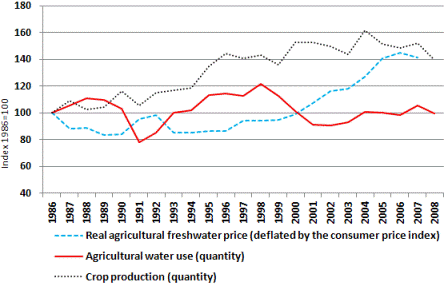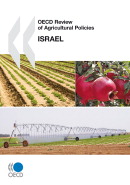Israel
OECD Review of Agricultural Policies: Israel
|
|
Government support to Israeli farmers has fallen over recent years but a number of market distorting policies are still in place, according to the first OECD Review of Agricultural Policies in Israel. |
Israel’s agriculture is unique amongst developed countries in that land and water resources are nearly all state-owned and that agricultural production is dominated by co-operative communities. Since the late 1980s, agriculture in Israel has benefited from: a stable macroeconomic climate; policy reforms; high levels of investment in R&D; a developed education system; high-performing extension services; and accumulated farm management expertise.
Israel is a world leader in agricultural technology, particularly in farming in arid conditions. Israeli agriculture thus relies on an “induced”, rather than “natural”, comparative advantage, one built on knowledge and technological progress.
|
Video A presentation of key figures from the OECD Review of Agriculture Policies: Israel. (Click image or heading to play video) |
Index of real agricultural freshwater price, agricultural water use
and crop production: Israel 1986-2008

Obtain your copy
|
|
This is the first OECD review of Israeli agricultural policies. It assesses Israel's agricultural policy performance over the last two decades, looks at achievements and remaining challenges, and provides a set of recommendations for continuing the reform process.
>> Download the full book and individual chapters at the OECD iLibrary (subscription access) >> Journalists with accreditation can access the book through our special password-protected site. |
|
See also:
-
Producer Support Estimates 1986 - 2008
-
Agricultural Policies in OECD Countries: At a Glance (2008)
Related Documents

 Position paper: Position Paper | Français
Position paper: Position Paper | Français 
